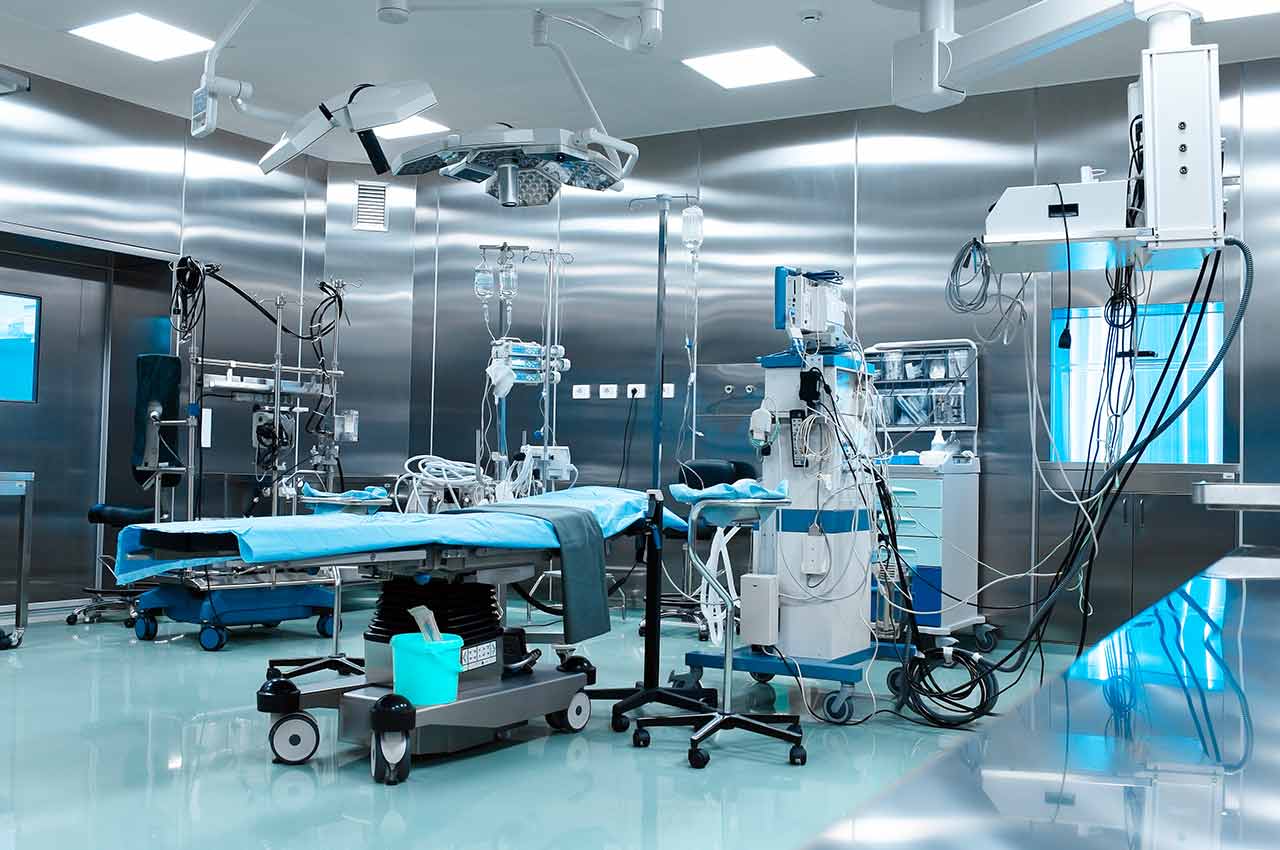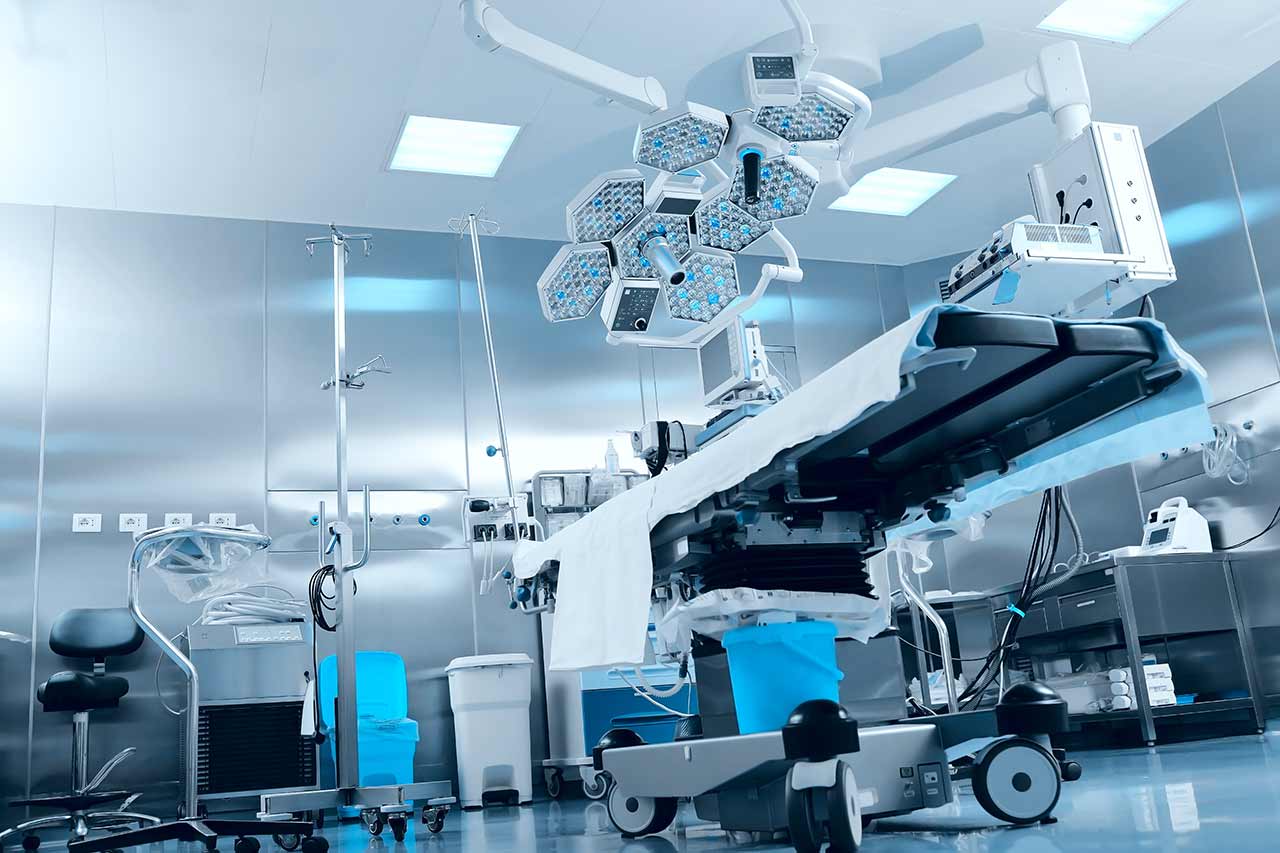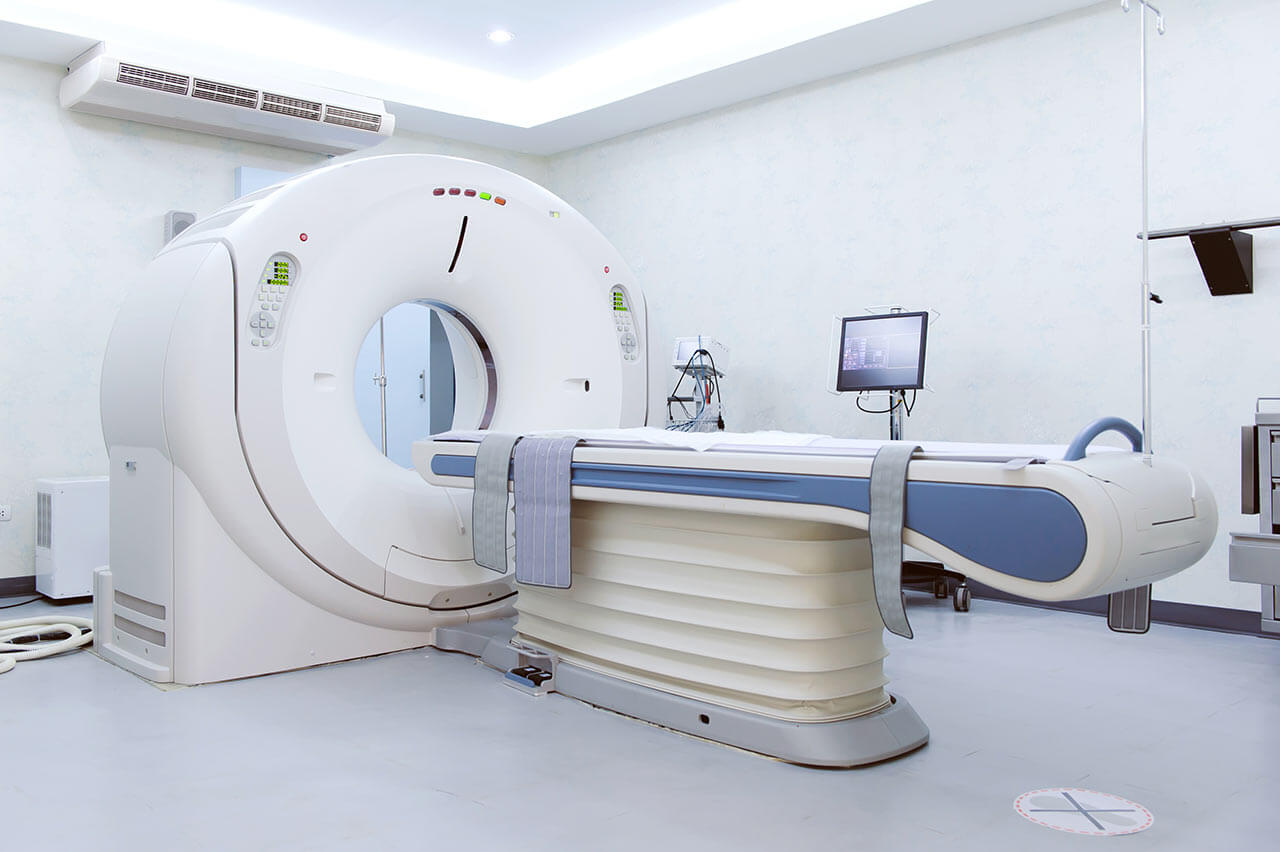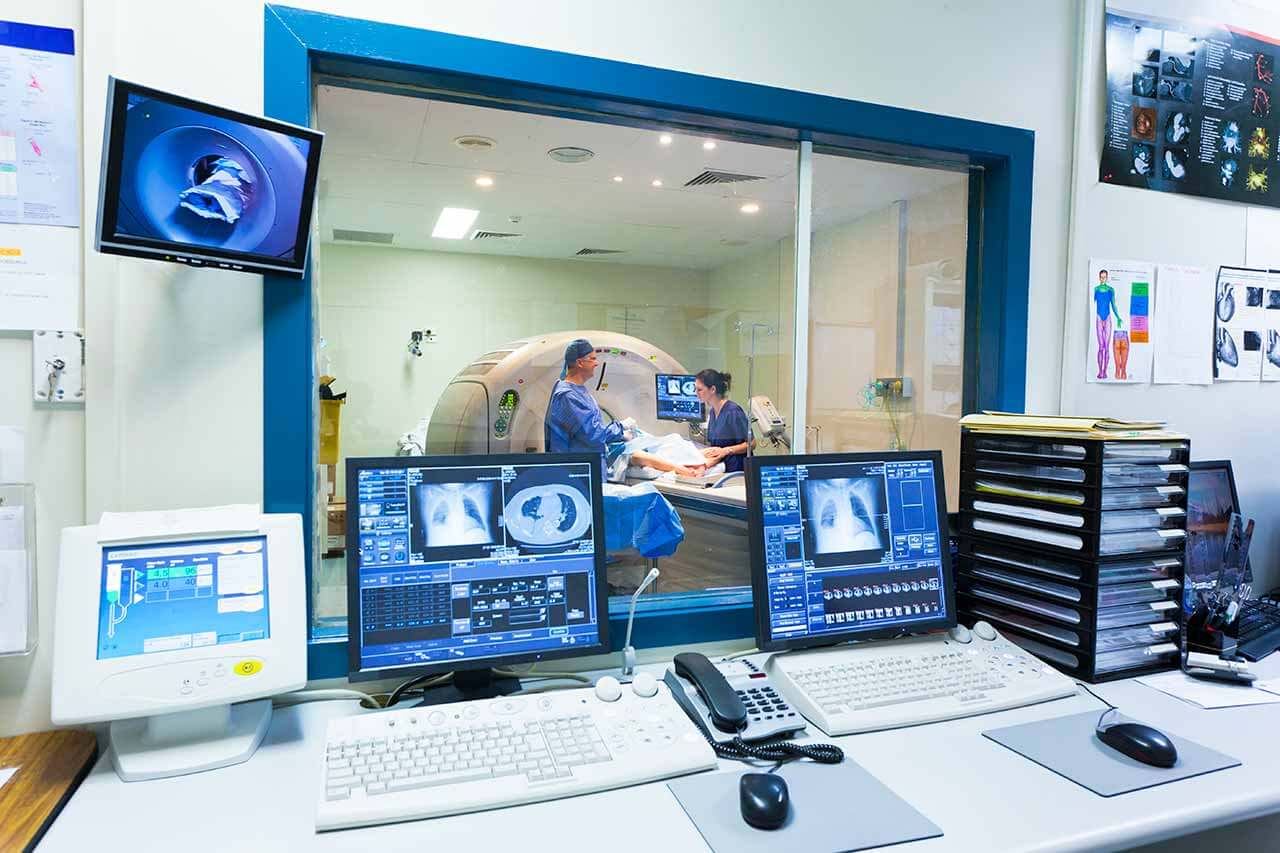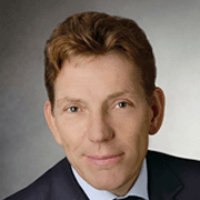
The program includes:
- Initial presentation in the clinic
- clinical history taking
- review of medical records
- physical examination
- ophthalmological examination:
- slit lamp examination
- ophthalmoscopy
- keratometry
- pachymetry
- gonioscopy
- photokeratoscopy
- laboratory tests:
- complete blood count
- general urine analysis
- biochemical blood test
- inflammation markers (CRP, ESR)
- blood coagulation analysis (aPTT, PT, INR)
- bacteriological examination of lacrimal fluid
- nursing services
- services of all leading experts
- explanation of individual treatment plan
Required documents
- Medical records
Service
You may also book:
 BookingHealth Price from:
BookingHealth Price from:
About the department
The Department of Adult and Pediatric Ophthalmology at the University Hospital Frankfurt am Main offers the full range of modern diagnostics and effective treatments for eye diseases. The department specializes in cataract, glaucoma, refractive eye surgery, surgical treatment of corneal, retinal and vitreous pathologies, correction of strabismus, surgical treatment of diseases of the eyelids and tear ducts. An integral part of the department's doctors work is the treatment of children with eye problems. The department is headed by Prof. Dr. med. Thomas Kohnen.
The department is proud of its long history and exceptional experience in the field of its competence. It treats more than 30,000 outpatients and inpatients every year, which demonstrates the excellent reputation of the medical facility.
The department is engaged in active research activities, which allow for the implementation of innovative treatment techniques into clinical practice. All diagnostic and therapeutic measures aim to preserve or restore vision, thereby not to worsen the patient's quality of life. The department is certified in accordance with DIN EN ISO 9001:2008 standards, as well as by the Commission for Refractive Eye Surgery (Joint Commission of the Professional Association of German Ophthalmologists and the German Society of Ophthalmology).
The diagnostic range of the department includes:
Eye examination using aberrometer |
Tear fluid analysis, smears |
Amsler Grid Test |
Intraocular pressure measurement (tonometry) |
Fundus examination |
Refractometry using automatic refractometer |
Corneal endothelial microscopy |
Color tests |
Fluorescein angiography |
Visual field test (perimetry) |
Corneal thickness measurement (pachymetry) |
Heidelberg retinal tomography |
Biometrics using IOL-Master™ (measures length of the eye (axial length), radii of corneal curvature (keratometry), distance between the cornea and the lens (depth of the anterior chamber) and the corneal diameter) |
Optical coherence tomography |
Intraocular pressure measurement using PASCAL® Dynamic Contour Tonometer |
Retinal visual acuity test using retinometer |
Schirmer's test |
Slit lamp microscope examinations |
Diagnostic flushing of the lacrimal ducts |
Ultrasound examination |
Other diagnostic services |
The therapeutic range of the department includes:
Cataract surgery |
|
Laser vision correction (refractive surgery) |
|
Treatment of corneal diseases (special focus on keratoconus) |
|
Treatment of retinal and vitreous diseases |
|
Treatment of ophthalmic diseases in children |
|
| Glaucoma treatment |
|
Plastic and reconstructive eyelid surgery |
|
Consultations on the selection of contact lenses | |
Treatment of uveitis | |
Other diseases of the eye and its appendages, other therapeutic methods |
Curriculum vitae
- 1982 - 1989 Study of Human Medicine at the RWTH Aachen, Friedrich-Wilhelms University in Bonn, University of Minnesota in Minneapolis, USA.
- 2006 - 2007 Health Economics, European Business School, International University (Health Economist).
Doctoral Thesis Defence
- 1989 Thesis, Friedrich-Wilhelms University in Bonn. Subject: "Capsule rupture and zone separation as complications of surgical cataract treatment with phacoemulsification".
Habilitation
- 2000 Habilitation, Johann Wolfgang Goethe University Frankfurt am Main. Subject: "Thermokeratoplasty with Ho:YAG laser for the treatment of hyperopia: histological, ultrastructural, immunohistochemical and clinical studies".
Professional Career
- 1986 - 1987 Scholarship of the German Academic Exchange Service (DAAD), Milan (Italy), Bombay (India).
- 1989 Medical examination.
- 1989 - 1992 Research Fellow, Bonn Dardenne Clinic (Intern, Assistant Physician).
- 1991 Admission to medical practice.
- 1992 - 1993 Research Fellow, Department of Ophthalmology, University Hospital Giessen (Assistant Physician).
- 1994 Board certification in Ophthalmology, Tübingen.
- 1994 - 1995 Senior Physician, Bundeswehr Hospital, Academic Hospital of Ulm University, basic military service (Medical Worker) and military training (Senior Physician).
- 1995 Traveler Scholarship, International Society of Refractive Surgery, Minneapolis, USA.
- 1995 - 1997 Research Internship, German Research Foundation, Cullen Eye Institute, Baylor College of Medicine, Houston, Texas (USA). "Physiology and pathophysiology of refractive surgery of the cornea with laser thermokeratoplasty (LTK). Experimental and clinical research."
- 1996 Appointed as a Senior Physician.
- 1997 C1 Research Fellow and Senior Physician, Department of Ophthalmology, Johann Wolfgang Goethe University Frankfurt.
- 2000 PD, Johann Wolfgang Goethe University Frankfurt.
- Since 2000, Visiting Professor in Ophthalmology, Cullen Eye Institute, Baylor College of Medicine, Houston, Texas (USA).
- 2001 University Docent (C2) and Senior Physician, Department of Ophthalmology, Johann Wolfgang Goethe University Frankfurt.
- 2003 Invitation to the position of Professor (C3), Department of Ophthalmology, Johann Wolfgang Goethe University Frankfurt.
- 2003 - 2012 Deputy Head of the Department and Leading Senior Physician, Department of Adult and Pediatric Ophthalmology, University Hospital Frankfurt.
- 2007 Military training (Senior Regimental Physician), Bundeswehr Hospital, Ulm.
- 2008 Fellow of the European Board of Ophthalmology (FEBO).
- 2011 Invitation to the position of Professor (Val and Edith Green Presidential Professorship), University of Utah, Salt Lake City, USA.
- 2011 Invitation to the position of W3 Professor, Ophthalmology, University Magdeburg.
- 2011 Invitation to the position of W3 Professor, Johann Wolfgang Goethe University Frankfurt.
- 2012 Head of the Department of Adult and Pediatric Ophthalmology, University Hospital Frankfurt.
Awards and Honors
- 1994 Best Paper of Session, American Society of Cataract and Refractive Surgery.
- 1994 First Prize of the Festival (co-author), European Society of Cataract and Refractive Surgery.
- 1995 Best Paper of Session, American Society of Cataract and Refractive Surgery.
- 1996 Goar Award (co-author) from Baylor Alumni Meeting, Houston, TX, USA.
- 1996 Research Award, German Society of Ophthalmology.
- 2000 Kiewiet de Jonge Medal, European Society of Cataract and Refractive Surgery.
- 2001 Research Award (jointly with Dr. J. Bühren), German Society of Ophthalmology.
- 2002 Leonhard Klein Award, German Society of Ophthalmology.
- 2002 Achievement Award from the American Academy of Ophthalmology.
- 2005 - 2006 Cataract & Refractive Surgery Today, selection as one of the Top 50 opinion leaders.
- 2005 Kiewiet de Jonge Medal, European Society of Cataract and Refractive Surgery (co-author).
- 2005 3rd Prize for Educational Value, European Society of Cataract and Refractive Surgery, Alcon Annual Video Festival.
- 2006 Video Winner, R.M.O. Meeting, Zermatt.
- 2007 Sicca Research Award, German Society of Ophthalmology.
- 2009 Senior Achievement Award for many years of distinguished service in programs of the Society from the Board of Trustees, American Academy of Ophthalmology.
- 2010 Focus doctors list 2010, expert in refractive and cataract surgery.
- 2010 Gold Medal, German Society of Ophthalmology.
- 2013 Prize for Extraordinary Commitment in Teaching.
- 2014 Silver Medal, German Society of Ophthalmology.
Photo of the doctor: (c) Universitätsklinikum Frankfurt
About hospital
According to the reputable Focus magazine, the University Hospital Frankfurt am Main ranks among the top German medical facilities!
The hospital was founded in 1914 and today is a well-known German medical facility, which combines rich traditions and scientific innovations. A medical team of more than 6,500 employees cares about the health of patients around the clock, ensuring them with the highest standards of medical care and best possible safety.
The hospital has 32 specialized departments and more than 20 research institutes, which have all the necessary resources for the provision of the most effective care for any patient. The hospital has 1,488 beds for inpatient medical care. The medical facility diagnoses and treats more than 51,000 inpatients and about 44,800 outpatients every year. Due to the demonstration of outstanding treatment results, the number of patients seeking medical care here increases significantly annually.
The hospital presents all areas of modern medicine, whereas its special competence lies in neuroscience, oncology, cardiovascular medicine, cardiac surgery and other fields. Many treatment methods available here are unique not only in Europe, but also internationally.
Photo: (c) depositphotos
Accommodation in hospital
Patients rooms
The patients of the University Hospital Frankfurt am Main live in comfortable rooms made in modern design and meeting the highest standards of European medicine. Each room is equipped with an ensuite bathroom with a toilet and a shower. The standard room includes a comfortable, automatically adjustable bed, a bedside table, a wardrobe, a table and chairs for receiving visitors and a TV. If desired, patients can use Wi-Fi. The patients can also stay in the enhanced-comfort rooms.
Meals and Menus
The patient and his accompanying person have a daily choice of three menus. If for any reason you do not eat all the food, you will be offered an individual menu. Please inform the medical staff about your dietary preferences prior to the treatment.
Further details
Standard rooms include:
Religion
Religious services are available upon request.
Accompanying person
During the inpatient program, an accompanying person may stay with you in a patient room or in a hotel of your choice.
Hotel
During the outpatient program, you may stay in a hotel of your choice. Managers will help you choose the most suitable options.
